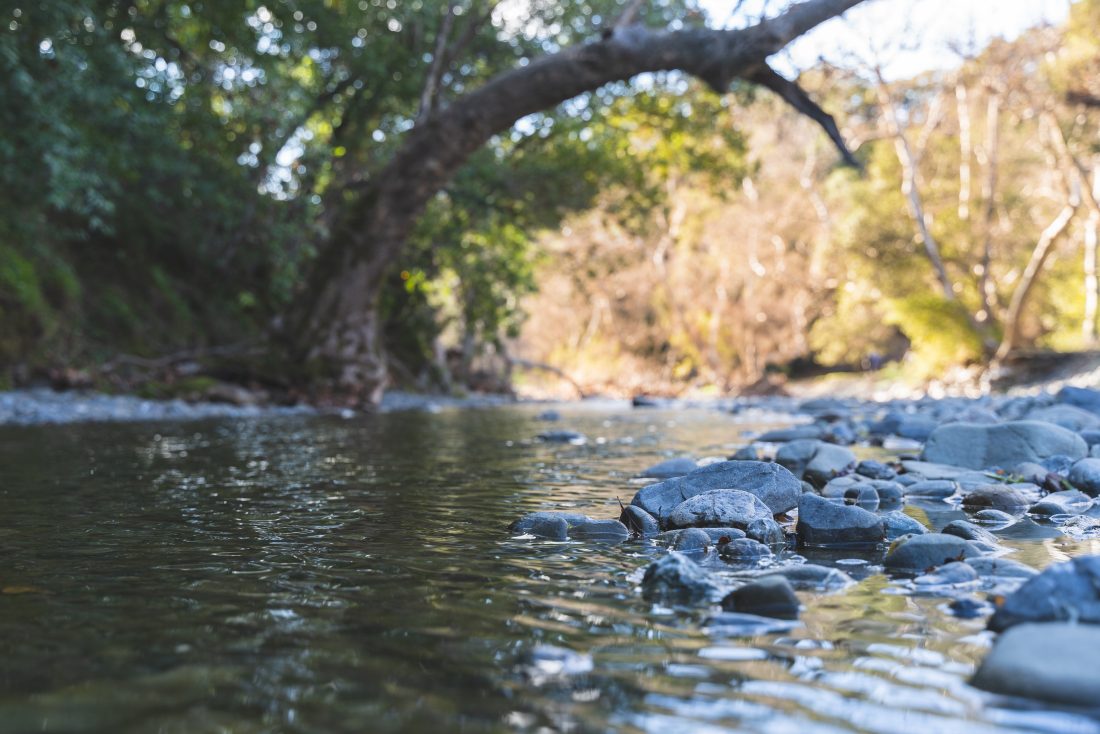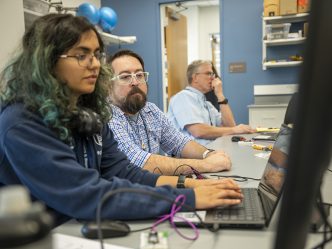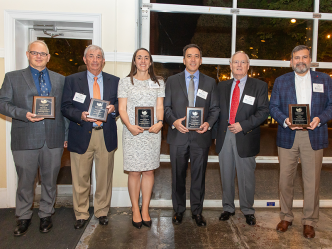The Georgia Power Foundation Waters for Georgia program has awarded a grant to the Phinizy Center in Augusta to research what is causing bacterial pollution in Brushy Creek, which is located in Jefferson and Burke counties and passes directly through the city of Wrens, Georgia.
Phinizy Center scientists have been tracking bacterial pollution in Brushy Creek over the last three years. Part of the team looking into the pollution includes Augusta University alumni Rachael Gonzalez, Jacob Lott and Jillian Amurao, along with current College of Science and Mathematics ecology student Trevor Jordan.
The research explores the question of how creeks become polluted with bacteria and identifying its source.

“There are a few different ways: heavy rainfall can wash contaminants into the creek, including manure-based fertilizers and waste from domestic animals,” said Lott, who is the Phinizy Center research technician and a Hull College of Business graduate. “It can also come from wild animals living in the watershed, or carcasses that have been dumped into the creek.”
This work brings Brushy Creek one step closer to dropping its status as an “impaired waterbody,” which would mean the water is clean and safe for those fishing and all who use the creek.
“The foundation is proud to support projects designed to improve water quality and contribute to the measurable benefits for communities and the environment across the state of Georgia,” said Rita Breen, executive director of the Georgia Power Foundation.
Phinizy Center researchers, including the AU alumni, will partner with Dr. Dave Bachoon, microbiologist at Georgia College & State University, to perform microbial source tracking, an innovative method to identify the species responsible for bacterial pollution from fecal matter. Microbes live in the feces of different animals, such as hogs, chicken and cattle. They can identify species-specific microbes to determine which animals are contributing to the high levels of bacterial pollution.
The research began as an initial grant to reduce bacterial pollution in Brushy Creek through feral hog management and an education outreach campaign. More than 200 hogs have been removed from the Brushy Creek watershed over the last two years, but bacterial pollution levels remain high, especially in the summer months. The Georgia Power Foundation’s Waters for Georgia grant will provide funding to identify the root cause of bacterial pollution and guide management.
 Augusta University
Augusta University




